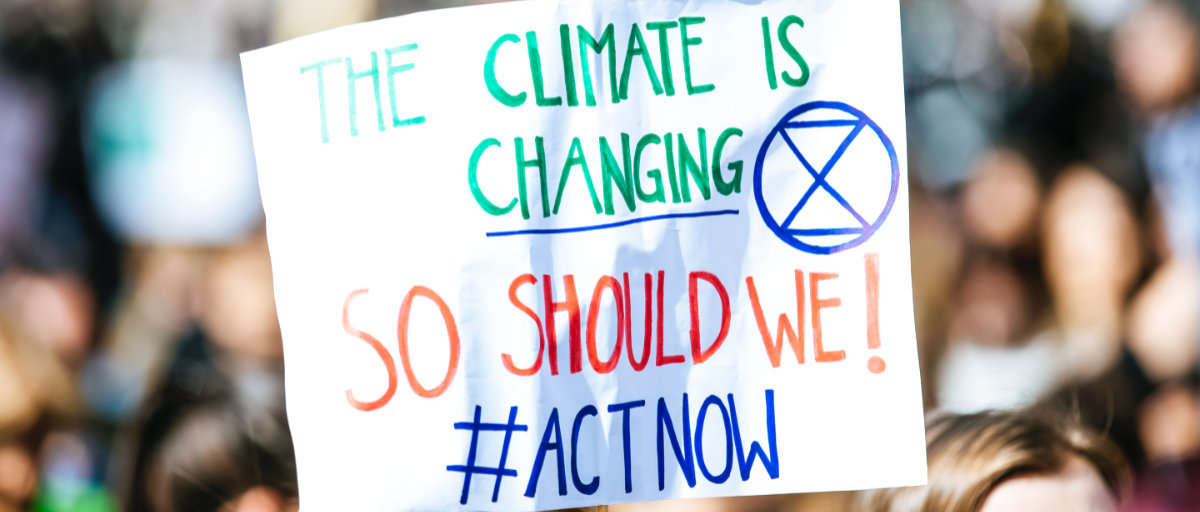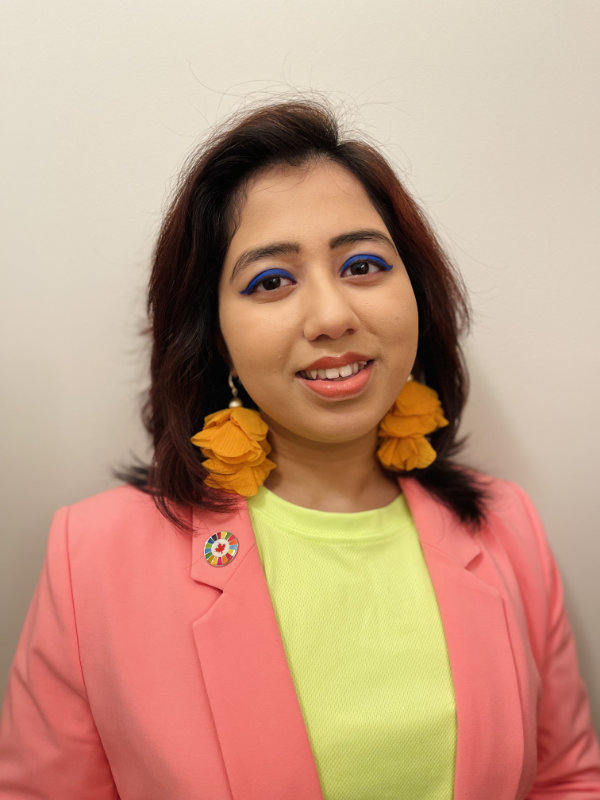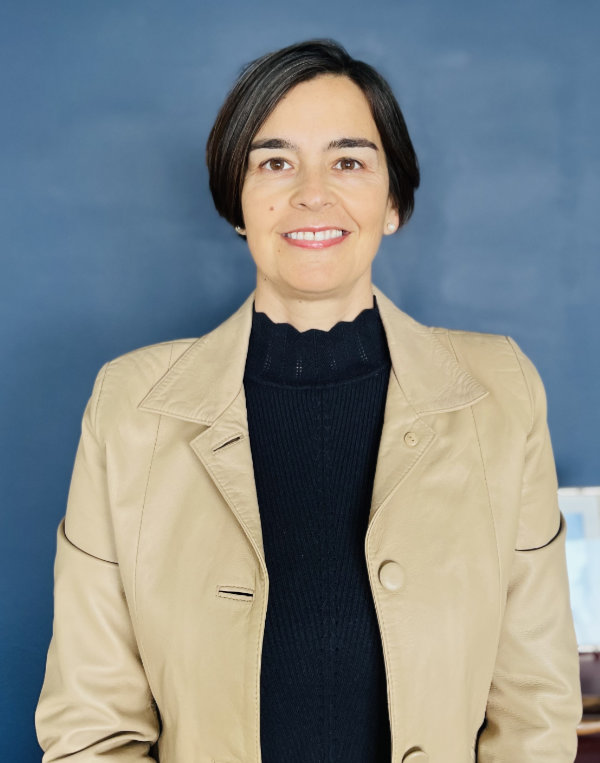Interview with Kehkashan Basu, Founder-President of Green Hope Foundation and keynote speaker at Dianova’s NGO CSW66 parallel event

Side event to CSW66: “Women at the Helm of Sustainable Solutions to Climate Threats” on Monday, March 21 at 10:00am – 11:30am EST – View event’s flyer
Interview by María Victoria Espada – On the margins of the 66th Commission on the Status of Women (CSW66), Dianova International will host a parallel event on “Women at the Helm of Sustainable Solutions to Climate Threats” on Monday, March 21 at 10:00am – 11:30am EST. Panelists will discuss intersections among gender equality, women’s empowerment, women’s health, and climate change and disaster risk reduction interventions. They will also underscore the imperative of empowering women as agents of social change and including their needs and voices in policy responses to ensure women’s rights are respected.
In preparation for the event, Dianova has interviewed its keynote speaker, Kehkashan Basu, an iconic global influencer, environmentalist, champion of women rights, TEDx speaker, author, musician, and peace and sustainability campaigner. Kehkashan is also the Founder-President of Green Hope Foundation, a global social innovation enterprise which works at a grassroots level in 26 countries, and Co-Lead of the Coalition on feminist action for climate justice of the Generation Equality Forum.
María Victoria: Kehkashan, you are a senior student at the University of Toronto majoring in Environmental Studies and minoring in Women and Gender Studies, and Physical and Environmental Geography. Also, at a young age, you are the Founder-President of Green Hope Foundation. How and when did this green journey begin?
Kehkashan Basu: I began my green journey after I saw an image of a dead bird with its belly full of plastic at the age of 7, which was deeply disturbing for me. It was also around the same time that I attended a lecture by environmentalist Robert Swan, whose words “The greatest threat to our planet is the belief that someone else will save it,” really resonated with me. This prompted me to plant my first tree on my 8th birthday, which is also World Environment Day, 5th June.
MV: And from planting that tree to founding Green Hope Foundation?
KB: I worked on the ground for many years and at the age of 11, I was invited to speak at my first UN conference. At the age of 12, I was invited to speak at the Rio+20 Earth Summit, where as one of the youngest delegates, I realized that the sustainable development process was not inclusive of children, young people, women and those from vulnerable communities. Thus, on my return home, I founded Green Hope Foundation to provide a platform of learning that turns into ground-level action. We were a part of all the negotiations that led up to the adoption of Agenda 2030 and the Sustainable Development Goals (SDGs), and we realized that the work we did was exactly what the SDGs mandated, so all we had to do was connect them.
MV: And what does Green Hope Foundation mean for you?
KB: It is the power of making changes that exists in every one of us. If adequately harnessed this power can be used to create a better, safer and more equitable world for all.
MV: You say you were present in the adoption ceremony of the Agenda 2030 and the SDGs at the age of 15. How would you describe that moment?
K: As the youngest of the 193 youth selected to represent each UN Member State when the SDGs were adopted, I felt that the SDGs provided a sign of hope because this plan of action finally took into account the specific needs and wants of vulnerable communities globally.
MV: However, it is often said nowadays that “the world is off track to achieve the SDGs”. What would we need to be on track again?
KB: We need a culture of empathy and intersectional ground-level actions. For far too long, the West has propagated a one-size-fits-all policy to address the world’s most pressing challenges, and I firmly believe that by adopting an empathetic, intersectional approach, we will be able to achieve the SDGs.
MV: I’ve learnt that Green Hope Foundation plays a crucial role educating youth and children. How important is education for a sustainable future?
KB: Education, in particular, Education for Sustainable Development, provides us with the knowledge and power to take actions for a sustainable future. We, at Green Hope Foundation, use Education for Sustainable Development as a transformative tool to provide the knowledge and skills to children, youth, girls and women globally to take actions in their own spheres of influence. For example, our education academies have led to the planting of over 720,000 trees, over 8000 mangroves, as well as the building of toilets and deep bore tube wells in vulnerable communities.

“The current consumption of natural resources and misuse of our earth is not sustainable…. We might have a plan B, but we do not have a planet B” – UN UN Secretary-General Ban Ki-Moon (2014) – Photo by Li-An Lim on Unsplash
MV: I frequently come across with the concept of “climate justice” but I am not an expert on climate change. In your words, what is climate justice and why is it important?
KB: Climate justice takes into account how climate change intersects with myriad social determinants, such as gender, sexuality, race, health, education, class and many more. It recognizes that climate change impacts different people and different communities in unique ways and therefore, to address climate change, we need localized solutions to ensure justice for all.
MV: So, do you mean that women are differently impacted by climate change than men? How does climate change intersect with women?
KB: Women are frequently in charge of gathering and manufacturing food, collecting water, and obtaining heating and cooking fuel. These tasks are growing more challenging because of climate change.
Let’s not forget that climate change-induced disasters and climate change in general have an amplified impact on the poor and most vulnerable, with women accounting for 70% of the world’s poor and 80% of those most affected by climatic disasters.
This impact is even greater on women of colour, indigenous women, women in rural communities, women and girls with disabilities and gender non-conforming youth because their unique challenges are forgotten due to the lack of an intersectional lens when addressing gender equality and climate change. However, while they are disproportionately affected by climate change, they also play an important role in climate adaptation and mitigation as leaders. Women have the knowledge and understanding of what it takes to adapt to changing environmental conditions and devise practical solutions.
MV: Bringing women’s voices and that specific knowledge from their local communities to high-level policy discussions looks challenging. How grassroots actions can be translated to advocacy at a global level? And what lessons have you learned in your work at Green Hope Foundation?
KB: From my experience, if every single person did their bit as individuals at the grassroots level, that in itself would translate to advocacy at a global level. My team and I have seen firsthand how the smallest actions are sometimes the most impactful, and this is applicable to global advocacy as well, where you have to start with the local challenges. I would say that this is the biggest lesson that we have learned from our work – not forgetting the importance of the small, local actions and how they come together to create global impact.

Anyone concerned about climate change could ask: how am I encouraging and supporting others to become more vocal in expressing concern – for example, by joining campaigns or public demonstrations, or making far-reaching changes in the way that they live? – Photo by Markus Spiske on Unsplash
MV: Like Green Hope Foundation, many NGOs are currently engaged in the follow-up of different United Nations processes. What do you think is the role of civil society organizations at the UN?
KB: Civil society organizations are critical to the functioning of the UN. I feel that we, as CSOs, bring to the table the call for accountability, transparency and ensuring that our needs and wants are taken into account during decision making. For instance, this NGO CSW forum is a wonderful way to hear the perspectives of those members of civil society whose voices might not be heard at the High-Level CSW but are no less important. Civil society organizations like Dianova bring to the UN the ground-level realities that are so often overlooked.
MV: However, research shows that multilateral organizations like the UN are “under attack” these days, reducing participation of communities and peoples worldwide in finding solution for today’s global crises. From your work with the UN, what does multilateralism mean for you?
KB: Multilateralism and solidarity are all about being united in our diversity. For example, the COVID-19 pandemic has shown us how wide the gaps in equitable access are in marginalized communities. and why it is of critical importance that we work together to rebuild better to create a better future for all. Thus, it is of crucial importance to have partnerships, understanding and compassion for one another. Through multilateralism and solidarity, we can create a new world order where no one is left behind.
MV: You often say, “young people do have the power to change the world”. How would you describe that transformative power?
KB: Young people are hopeful, enthusiastic, passionate, and bring to the table their fresh and unique perspectives that are unfettered by cynicism – this is the ‘transformative power’ that I see every day through my work with children and young people globally.
MV: Being yourself a hopeful, enthusiastic, passionate young woman, how do you see the world and yourself in 20 years? How is the future that you want?
KB: In 20 years, I want to see an equitable world where every single person is treated with respect and dignity and are accepted for who they are; where there is no discrimination based on gender, race, sexuality, class, education or any other social determinant.
In 20 years, I want to see a world where human beings are able to live in harmony with nature and not exploit its resources for their own gain.
In 20 years, I see myself continuing to lead the Green Hope Foundation to maintain this equitable and sustainable world, making sure that we never repeat the mistakes of the past. This is the future I want.
Get to know Kehkashan better through her lifestory


